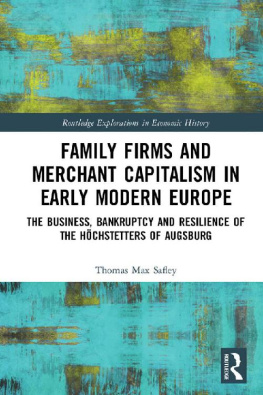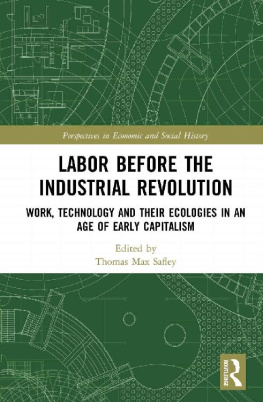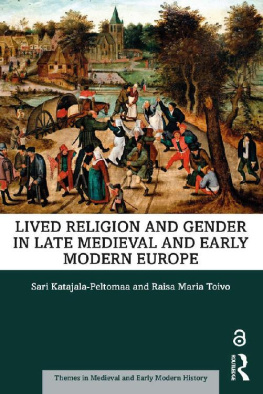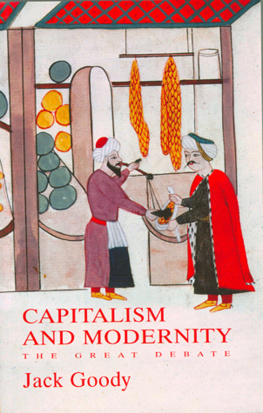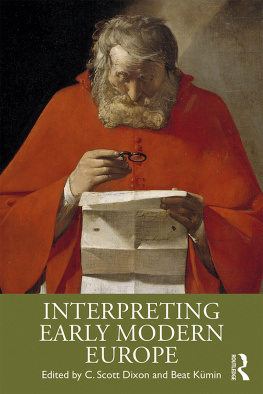Family Firms and Merchant Capitalism in Early Modern Europe
This fascinating study follows the fortunes of the Hchstetter family, merchant-manufacturers and financiers of Augsburg, Germany, in the late-fifteenth and early-sixteenth centuries, and sheds light on the economic and social history of failure and resilience in early modern Europe. Carefully tracing the chronology of the familys rise, fall and transformation, it moves from the micro- to the macro-level, making comparisons with other mercantile families of the time to draw conclusions and suggest insights into such issues as social mobility, capitalist organization, business techniques, market practices and economic institutions. The result is a microhistory that offers macro-conclusions about the lived experience of early capitalism and capitalistic practices.
This book will be valuable reading for advanced students and researchers of economic, financial and business history, legal history and early modern European history.
Thomas Max Safley is Professor of Early Modern European History at the University of Pennsylvania, USA.
Routledge Explorations in Economic History
Edited by Lars Magnusson, Uppsala University, Sweden
European Banks and the Rise of International Finance
The Post-Bretton Woods era
Carlo Edoardo Altamura
The Second Bank of the United States
Central banker in an era of nation-building, 18161836
Jane Ellen Knodell
War, Power and the Economy
Mercantilism and state formation in 18th-century Europe
A. Gonzlez Enciso
The Western Allies and Soviet Potential in World War II
Economy, Society and Military Power
Martin Kahn
Money, Currency and Crisis
In search of Trust, 2000 BC to AD 2000
Edited by R.J. van der Spek and Bas van Leeuwen
The Development of Modern Industries in Bengal
Re-Industrialisation, 18581914
Indrajit Ray
The Economic Development of Europes Regions
A Quantitative History Since 1900
Edited by Nikolaus Wolf and Joan Ramn Ross
Family Firms and Merchant Capitalism in Early Modern Europe
The Business, Bankruptcy and Resilience of the Hchstetters of Augsburg
Thomas Max Safley
For more information about this series, please visit www.routledge.com/series/SE0347
Family Firms and Merchant Capitalism in Early Modern Europe
The Business, Bankruptcy and Resilience of the Hchstetters of Augsburg
Thomas Max Safley
First published 2020
by Routledge
2 Park Square, Milton Park, Abingdon, Oxon OX14 4RN
and by Routledge
52 Vanderbilt Avenue, New York, NY 10017
Routledge is an imprint of the Taylor & Francis Group, an informa business
2020 Thomas Max Safley
The right of Thomas Max Safley to be identified as author of this work has been asserted by him in accordance with sections 77 and 78 of the Copyright, Designs and Patents Act 1988.
All rights reserved. No part of this book may be reprinted or reproduced or utilised in any form or by any electronic, mechanical, or other means, now known or hereafter invented, including photocopying and recording, or in any information storage or retrieval system, without permission in writing from the publishers.
Trademark notice : Product or corporate names may be trademarks or registered trademarks, and are used only for identification and explanation without intent to infringe.
British Library Cataloguing-in-Publication Data
A catalogue record for this book is available from the British Library
Library of Congress Cataloging-in-Publication Data
A catalog record for this book has been requested
ISBN: 978-0-367-13710-6 (hbk)
ISBN: 978-0-429-02820-5 (ebk)
Typeset in Bembo
by Apex CoVantage, LLC
Contents
Guide
In most important commercial and financial centers of Europe, many kinds of money circulated regularly. In Augsburg, for example, traders frequently encountered the Imperial Taler , the Bohemian Groschen and the Munich Schilling, among many others. During the late-fifteenth and early-sixteenth centuries, according to Elsas, the city minted and used the Pfund , Schilling , Pfennig and Heller , in which 1 Pfund = 20 Schilling = 60 Pfennigen = 120 Heller . Only in 1539 did the Pfund disappear from accounts, though it remained a common coin in circulation, to be replaced by the Gulden , abbreviated fl, Kreutzer , abbreviated kr, and Pfennig . Not until 1546 did the Heller , abbreviated hl, reappear in place of the Pfennig .
The matter of money is not so straightforward, however. In nearly all accounts rendered by the Hchstetters, their creditors or the authorities, sums owed or paid appear as Gulden, Kreutzer and Heller , all coinage reforms notwithstanding. Moreover, parties to the bankruptcy recorded even more varieties of money, all of which had to be specifically recorded in the proceedings. The following equivalencies apply as a general rule:
- 1 Gulden (fl) = 60 Kreutzer (kr) = 420 Heller (hl); 1 Kreutzer = 7 Heller .
- 1 Gulden = 15 Batzen = 60 Kreutzer ; 1 Batzen = 4 Kreutzer .
- 1 Gulden = 60 Kreutzer = 210 Pfennigen (pf); 1 Kreutzer = 3.5 Pfennigen .
- 1 Gulden = 30 Schilling () = 360 Heller ; 1 Schilling = 12 Heller .
Unless noted, all money values have been rendered in Gulden and Kreutzer , just as the historical accounts of the Hchstetter firm and its bankruptcy were kept. For the readers ease, these are usually rounded to the nearest Gulden in the text.
It is a common practice among scholars to provide the original texts from which they have made translations. This enables the attentive reader who is familiar with the languages to reach independent conclusions about the accuracy of the authors interpretations. In the present volume, historical sources are quoted at considerable length. To achieve a degree of economy and relieve the text of many, long, possibly intrusive notes, I decided to include the original language only when translating unpublished archival sources, that is, sources that did not make the original text and language available in an easily accessible form. Should questions of translations arise, I beg the readers indulgence and encourage her or him to make use of the original texts as they appear in the cited, published editions.
My fascination with the topic of bankruptcy and my conviction that it provides an under-appreciated and under-utilized point of entry to economic practices in the past began nearly 40 years ago. The Alexander von Humboldt Foundation enabled me to spend two years in Augsburg, at which point began an apparently permanent fascination with the city and its history. During my stay there, I worked daily in the City Archive and was permitted at one point to go unaccompanied into the stacks, a thing unimaginable to most historians and horrifying to all archivists. As I wandered from room to room, each filled with double-tiered shelving that held the collections of what is today one of the largest civic archives in Germany and by most accounts by far the richest for the early modern period, I stumbled quite literally upon the collection entitled Schuld-, Klag- und Appellationssakten , roughly Debt, Complaint and Appeal Acts. It contains hundreds, perhaps thousands of bound and boxed documents having to do with default, insolvency and bankruptcy.
For an economic historian looking for evidence of early economic life, it was like discovering Ali Babas cave. With other projects in hand and in mind, I made a swift note at the time and promised myself that one day I would explore this room and its contents with more attention. Nearly 30 years after that initial encounter, I returned to the topic of bankruptcy and settled among the many riches of the City Archive on the Hchstetter family and the failure of its family firm, Ambrosius and Hans, the Brothers Hchstetter and Associates. I was by no means the first to do so; the Hchstetters have attracted historians attention since the sixteenth century. I felt there was more to say, however. Slowly, over the ensuing ten years, amidst many distractions and other commitments, the present volume took shape.

